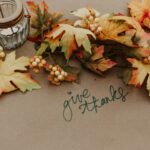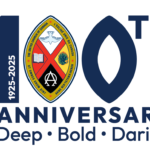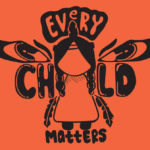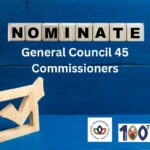By Cecile Fausak, Facilitator, Being Good Relations Leadership Group
(The Being Good Relations Network covers Northern Spirit and Chinook Winds Regional Councils, and focuses on living out the TRC Calls to Action, the UN Declaration on the Rights of Indigenous Peoples, the Caretakers’ Calls to the United Church, and other commitments. We focus on accompanying each other, and our faith communities and wider communities, on that wider journey, working alongside each other as Indigenous and non-Indigenous people, and taking direction from Indigenous communities. New members are welcome! Want to join the email list for occasional updates? Email Julie at jgraham@united-church.ca)
So where are you and your community of faith on the road to reconciliation and decolonization as we reconnect, and discern who “we” are in this land recovering from COVID and its many impacts?
As the Inter-Region Being Good Relations Network Leadership Group asked ourselves how we were and where we were going in our two fall Zoom gatherings, it is clear that things are messy, mucky, muddy, foggy, confused, exhausting, hurtful, sad, and yet… there are many sparkles of hope, as you will see in other Fall 2022 updates on our page. We want to hold space for each other, tenderly, bravely, tenaciously, and with grace. We are thinking about how we might meet in-person or online in clusters of communities of faith during Lent. We are also dreaming about organizing some road trips in the summer to visit communities and important Indigenous sites. If you are intrigued or have any thoughts about topics, speakers, or hosting a group of 10-30 people, please contact Cecile or Julie or Tony.
I appreciated these guiding quotes from the Broadview on-line article “Advocate shocked by racist backlash over Indigenous food forest in Vancouver”. Leona Brown (Gitxsan and Nisga’a) says “a big part of decolonization [going hand in hand with reconciliation] involves reconnecting Indigenous people to the history, culture and traditions they were forcibly disconnected from.” An Indigenous food forest in an urban park can do this. As settler church folk trying to be allies, Brown says “that one of the best ways to support Indigenous communities and individuals is to simply listen—to their stories, to their trauma, and to what they need to move forward. “And you know, your heart will tell you where to help us”.”
During Advent as we ‘feel our way’ and “muddle along”, let us take time to be still and listen to what human and more-than-human pregnant mothers and newborns may show and teach us.
At the October 29, 2022 KAIROS Prairies North Regional annual meeting with the theme “Activating Hope: Faith and the Climate Crisis”, Rev. Tony Snow and others encouraged us to listen to ‘all our relations”. In pairs, we shared the last time that we had spoken with a ‘more-than-human’.
 On October 19, I was enjoying one of our beautiful fall days walking around Cranna Lake in Lacombe, near my new home, but ruminating on many discomforting thoughts arising from the “40 Days of Engagement on Anti-Racism” (blogs and recordings all still available). I looked directly at the twinkling waters and asked the ‘waterbody’: What do you have to teach me today?
On October 19, I was enjoying one of our beautiful fall days walking around Cranna Lake in Lacombe, near my new home, but ruminating on many discomforting thoughts arising from the “40 Days of Engagement on Anti-Racism” (blogs and recordings all still available). I looked directly at the twinkling waters and asked the ‘waterbody’: What do you have to teach me today?
The response was swift: “Look at me! I came rushing in here as dirty storm run-off water, turbulent. After being still for a while, I am much clearer and calmer. The birds ride my ripples, make their homes on my shores and among the cleansing cattails, call to one another, and feed happily. The winds caress me. The trees stand guard, and drink from me. The sun dances with my drops, and flashes of light emanate. And you have paused to take in my beauty and give thanks. So, while life has been stormy, and you may feel beaten and washed-up, be still; listen to the more-than-humans speak, and heal so that life may flourish in and around you.“ May it be so for me and you.





